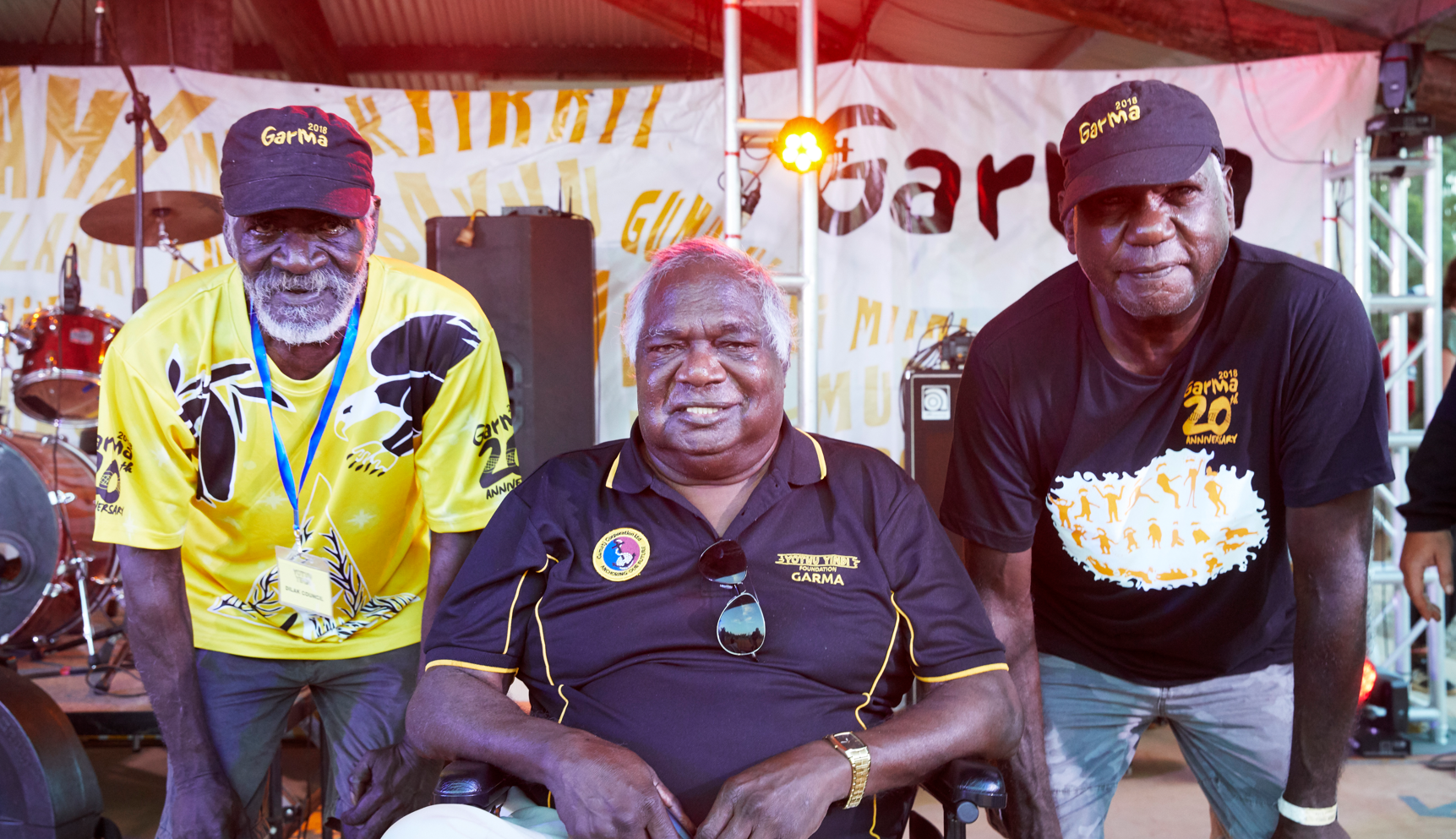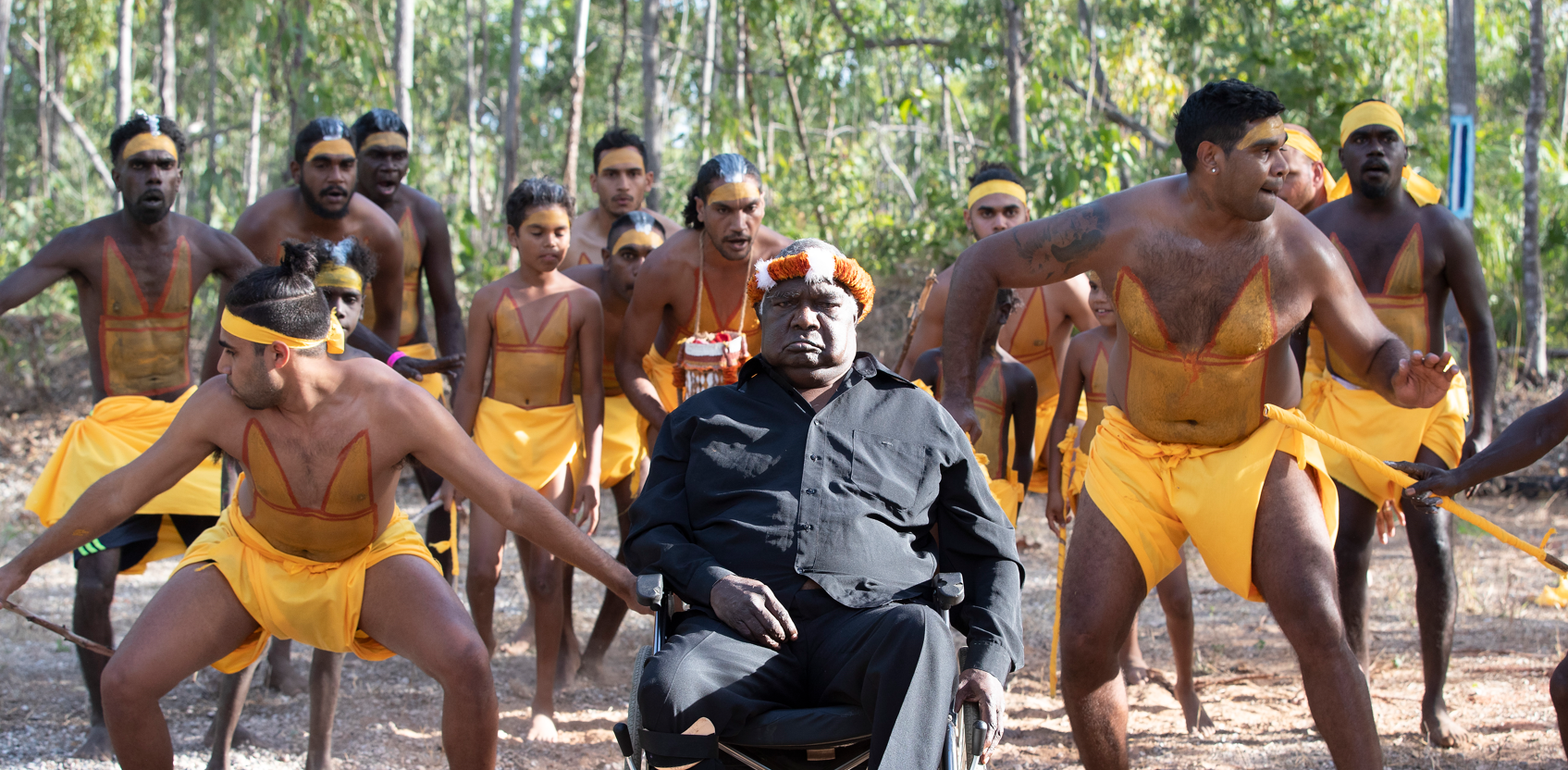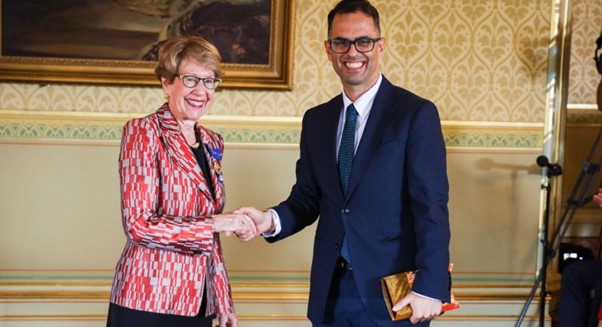Nexus APAC is saddened to acknowledge the passing on Monday, 3rd April, of Aboriginal elder Yunupingu.
A Yolngu man and the leader of the Gumatj clan from north-east Arnhem land, Yunupingu was a trailblazer in the Aboriginal and Torres Strait Islander rights movement. He worked with an extensive list of senior figures in federal and state governments, including with every Prime Minister since Gough Whitlam.
Despite this, Yunupingu’s most important role was that for his community, as shown through his lifelong commitment to work for his clan and the survival and longevity of his culture.
Yunupingu’s totems were fire, rock and baru (saltwater crocodile), and his name means the sacred rock that stands against time. Yunupingu’s lifelong work will undoubtedly stand against time, and the fire of his vision will continue to shine brightly as a result of his tireless advocacy.
Community Involvement
Yunupingu was an activist from a young age. In 1963, at the age of 15, he assisted his father, Mungarrawuy Yunupingu, in drafting the Yirrkala Bark Petitions. These documents were the first traditional Aboriginal documents to be recognised by the Australian Parliament. Yunupingu and his father were an instrumental part of the fight for the land rights of the Yolngu people. This petition led to the Milirrpum decision (also known as the Gove land rights case), where Yunupingu acted as a court interpreter, ensuring that there was no barrier to accessing the case for his people.
A decade later, the Northern Land Council (NLC) was formed, initially to assist in developing an appropriate way to recognise Aboriginal land rights in the NT. The body then continued to liaise with traditional landowners about land management. Yunupingu was instrumental in the NLC’s work, being elected the NLC’s first chairman in 1977, serving until 1979 and then again from 1983 until 2004. This summates to a tenure of 23 years or nearly a third of Yunupingu’s life.
In 1990 Yunupingu helped establish the Yothu Yindi Foundation with other local clan leaders. The foundation was established to promote Yolngu cultural development with community leaders and to strive for Yolngu and other Indigenous Australians to have the same level of well-being and opportunity as non-Indigenous Australians.
After the historic Mabo decision by the High Court of Australia on Native Title, Yunupingu convened a meeting of around 400 Indigenous leaders. This meeting led to the Eva Valley statement, which called on the federal government to legislate on Native Title and led to the drafting and implementation of the Native Title Act 1993, a momentous step in Indigenous land rights.
Yunupingu, through the Yothu Yindi Foundation, established the first Garma Festival in 1999. Garma is the most significant Indigenous gathering, showcasing Yolngu life and culture on Yunupingu’s land in remote north-east Arnhem land. Garma showcases traditional miny’tji (art), manikay (song), bunggul (dance) and storytelling and is an important meeting point for the clans and families of the region.
His fight for Aboriginal and Torres Strait Islander rights continued into the later stages of his life. In 2019 Yunupingu was appointed to the Senior Advisory Group on the Voice to Parliament and was instrumental in forming the model of the Voice to Parliament.
In 2019, Yunupingu also launched landmark action in the Federal Court against the Commonwealth under the Native Title Act, alleging the acquisition of Gumatj Native Title rights and interests for mining in 1968 was unlawful and done without ‘just terms’. Though this action is yet to be finalised, it demonstrates his enduring intent to strive for rights and opportunities for his people.
Working with Government
Yunupingu’s activism and work with government was far-reaching. He was known to unite rather than divide, allowing him to work with both sides of politics to advance Indigenous rights.
Significant engagements included:
Prime Minister Gough Whitlam – In conjunction with the Woodward Commission of Inquiry and the establishment of land councils.
Prime Minister Malcolm Fraser – A change in government saw him working with Prime Minister Fraser on the recommendations of this inquiry, which led to the enactment of the Aboriginal Land Rights (Northern Territory) Act 1976.
Prime Minister Bob Hawke – Yunupingu, with other Indigenous leaders, presented the Barunga Statement to Prime Minister Hawke in 1988.
Prime Minister Kevin Rudd – In 2007, in a speech at the University of Melbourne, Yunupingu called for constitutional recognition of Aboriginal and Torres Strait Islander people. To this end, in 2008, he presented a petition to Prime Minister Rudd at Yirrkala calling for constitutional recognition.
Prime Minister Tony Abbott – Yunupingu’s work with Prime Minister Abbott led to his cabinet visiting Yunupingu’s country in north-east Arnhem land for five days.
Prime Minister Malcolm Turnbull & Opposition Leader Bill Shorten – On the same land in 2017, he hosted Prime Minister Malcolm Turnbull as well as Opposition Leader Bill Shorten at Garma.
Prime Minister Anthony Albanese – In 2022, Yunupingu hosted Prime Minister Albanese at Garma, where Albanese delivered his landmark referendum speech announcing the initial draft of the proposed referendum question to change the Constitution to enshrine an Indigenous voice.
Individual Achievements
1978 – Named Australian of the Year for the consultation process on the Ranger uranium mine agreement. His philosophy of uniting rather than dividing led to the agreement allowing for mining to occur as long as it was on the Traditional Owners’ terms and with respect for the land.
1985 – Appointed Member of the Order in Australia Day honours – for services to the Aboriginal community.
1998 – Named an Australia National Living Treasure – by the National Trust of Australia – due to his outstanding contributions to Australian society in a field of human endeavour. Yunupingu was recognised for his exceptional work in the advancement of Indigenous Australians.
The Nexus APAC team deeply admires the outstanding work that Yunupingu undertook in forwarding the rights and recognition of Aboriginal and Torres Strait Islander people.
May he rest in peace.
Constitutional Recognition and The Voice – Significant Updates
Liberal Party & Shadow Cabinet Position
The Federal Liberal Party met in Canberra on Wednesday, 5th April 2023. Leader of the Opposition, the Hon Peter Dutton MP, outlined the party room’s position that they will oppose the referendum to enshrine an Indigenous Voice to Parliament in the Constitution, instead preferring constitutional recognition in a different form and legislating regional voices.
Following this announcement, former Liberal MP and Minister for Indigenous Australians, the Hon Ken Wyatt, resigned from the Liberal Party. Additionally, Julian Leeser MP resigned from the shadow cabinet as Shadow Minister for Indigenous Australians and Shadow Attorney General to sit as a Liberal backbencher. This move allows him to join fellow Liberal Party backbenchers Bridget Archer MP and Senator Andrew Bragg to advocate for a Yes vote in the referendum.
Special Envoy for Reconciliation and the Implementation of the Uluru Statement from the Heart
Senator Pat Dodson, the Special Envoy for Reconciliation and the Implementation of the Uluru Statement from the Heart, has taken leave from Parliament for the next few months as he undertakes a course of medical treatment.
The Nexus APAC team wishes Senator Dodson a speedy recovery.
Sporting Figures and the YES Campaign
Prime Minister Anthony Albanese has also commented that he wishes to see the engagement of sporting figures in publicly supporting the Voice to Parliament. Former AFL and NRL icons Adam Goodes and Jonathan Thurstan are being discussed as leaders of such a campaign.
The Prime Minister noted that Tennis Australia, Cricket Australia, and Australian basketball legend Patty Mills have already pledged their support for the Voice.
Song of the Week:
Honouring Yunupingu’s life and legacy, this week the Nexus Team has chosen the 1991 song Treaty by Yothu Yindi.
Treaty was the first song by a mainly Aboriginal band to peak on the ARIA singles chart. It was also the first song in an Aboriginal Australian language to gain extensive international recognition. Yunupingu’s brother was a member of Yothu Yindi and Yunupingu himself provided vocals for the band’s songs and painted their album covers.
You can listen to the original song here.

** The photos and images now included in this blog have been approved for public use by the family and the Yothu Yindi Foundation.
Latest posts by Nexus APAC (see all)
- United Kingdom General Election 2024: An Overview - April 15, 2024
- Australian Voters Go to the Polls - February 26, 2024
- Secretaries of Federal Departments – An Overview - February 1, 2024



